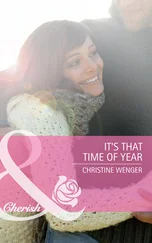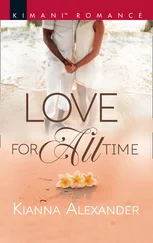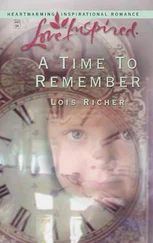Alexander Todd - A Time to Remember
Здесь есть возможность читать онлайн «Alexander Todd - A Time to Remember» весь текст электронной книги совершенно бесплатно (целиком полную версию без сокращений). В некоторых случаях можно слушать аудио, скачать через торрент в формате fb2 и присутствует краткое содержание. Город: Cambridge, Год выпуска: 1983, ISBN: 1983, Издательство: Cambridge University Press, Жанр: Химия, Биографии и Мемуары, на английском языке. Описание произведения, (предисловие) а так же отзывы посетителей доступны на портале библиотеки ЛибКат.
- Название:A Time to Remember
- Автор:
- Издательство:Cambridge University Press
- Жанр:
- Год:1983
- Город:Cambridge
- ISBN:0 521 25593 7
- Рейтинг книги:3 / 5. Голосов: 1
-
Избранное:Добавить в избранное
- Отзывы:
-
Ваша оценка:
- 60
- 1
- 2
- 3
- 4
- 5
A Time to Remember: краткое содержание, описание и аннотация
Предлагаем к чтению аннотацию, описание, краткое содержание или предисловие (зависит от того, что написал сам автор книги «A Time to Remember»). Если вы не нашли необходимую информацию о книге — напишите в комментариях, мы постараемся отыскать её.
A Time to Remember — читать онлайн бесплатно полную книгу (весь текст) целиком
Ниже представлен текст книги, разбитый по страницам. Система сохранения места последней прочитанной страницы, позволяет с удобством читать онлайн бесплатно книгу «A Time to Remember», без необходимости каждый раз заново искать на чём Вы остановились. Поставьте закладку, и сможете в любой момент перейти на страницу, на которой закончили чтение.
Интервал:
Закладка:
When we were married we went to spend a day or two in the New Forest, but decided to defer the honeymoon proper until winter was over and go in April to Portofino in Italy. So it was that we found ourselves in April 1937 spending a fortnight at the Hotel Splendido (the title was rather flattering) on the hillside overlooking the tiny harbour of Portofino. There were few other visitors but they included an American couple who looked to be ten years or so older than ourselves, and who kept themselves very much to themselves - as, I suppose, we did. I did not recognise either of them, although I quickly deduced that the husband at least must be a chemist. While swimming at nearby Paraggi, I saw him lying on the beach reading Chemical Abstracts; this behaviour I found peculiarly repellent in such surroundings and decided that we would not seek to press acquaintance! It was our custom to have breakfast on the hotel terrace and, while doing so one morning a telegram was brought to me. I opened it and read the surprising contents. 'Are you interested blo-organic chemistry Pasadena. Letter follows. Millikan.' I laughed and then read it aloud to my wife. Out of the corner of my eye I noticed that the interest of the American chemist was evidently aroused by what he had overheard, but we neither of us said anything. I mention the American couple because just over a year later at Harvard we met them again and all four had a good laugh at our recollections of Portofino - they were in fact Professor and Mrs Louis Fieser whose textbooks on organic chemistry became almost universally used.
In due course, after our return from Portofino, I received a long letter from Dr Millikan, President of the California Institute of Technology, setting out his proposition. Briefly put, Mr and Mrs Crellin, a wealthy Californian couple, had made a substantial benefaction to the CalTech for organic chemistry and with it a new building - the Crellin Laboratory - was being erected alongside the existing Gates Laboratory where the young Linus Pauling had recently been installed, and which was largely devoted to physical chemistry. My kind of organic chemistry was not well represented in the United States in those days, and apparently the Rockefeller Foundation informed Millikan that if he could persuade me to come they would provide $1 million to help develop and maintain the Crellin Laboratory as a department of bio-organic chemistry; I believe that this was the first occasion on which the expression 'bio-organic' was officially used (it certainly was novel enough to fox the international telegraph company!). I was not prepared to accept without first seeing the situation in Pasadena at first hand, and I proposed that my wife and I should go there for a month or six weeks in the spring of 1938 on a basis of no commitment on either side: this was accepted by Millikan, and it was agreed that we should visit California in March 1938. My decision to go was not greeted with marked enthusiasm either by Sir Henry Dale or Sir Robert Robinson. Apparently they were quite happy that my wife and I should go to Toronto, because they thought we would only spend a few years there before returning; but Pasadena was another story, for they feared that if I went there I would probably stay! Perhaps it was for this reason that Sir Robert pressed me to submit an application for the chair of chemistry at King's College London at the end of 1937. This is the only job for which I have ever made a formal application - and the University of London's electors to the chair did not even bother to take up my references; which was, perhaps, just as well, for I really had no desire to go to King's College.
So off we went in March 1938 after giving a promise that we would not formally accept any offer made by Pasadena until we had returned to England and could take our final decision away from the glamour of California. We had an exceedingly rough crossing of the Atlantic in the United States Lines' ship Washington and my first sight of America was snow-and ice-bound New York. We spent a few days up the Hudson River near Ossining with Dr H. D. Dakin and his wife. Dakin was a very old friend of the Dales and was affectionately known in their family circle as Uncle Zyme. He pursued his researches in biochemistry in a private laboratory built in the grounds of his home, and was one of the gentlest and wisest scientists I have ever known. From New York we went by rail (NYC) to Chicago where we had to change stations and proceed further on the Union Pacific Railroad's 'Los Angeles Limited'. On the train to Chicago we met a friendly and cheerful businessman returning to his home in Wichita, Kansas after what seemed to have been a successful trip to New York. He tried hard to get me to sign a petition aimed to unseat President Roosevelt; when I pointed out that I wasn't an American citizen he told me that wouldn't matter, since ' any signature is OK if it helps get rid of that so-and-so!' We had a few hours to wait in Chicago before the 'Los Angeles Limited' left in the late evening, and our casual acquaintance on the train insisted on showing us around in a car and then took us to the beer-cellar at the Brunswick Hotel where we spent the evening consuming sausage and beer with waitresses in Bavarian costume, a Schuhplattler group for entertainment, and German as the language used by most of the customers. Our train from Chicago proceeded through Iowa overnight and reached Council Bluffs and the Missouri River the following morning, then wound its way across the desolate winter landscape of Nebraska, through Wyoming and then into Utah and Salt Lake City on a fine clear day which gave it a strikingly beautiful appearance when seen from afar. Here we were informed that severe floods in Southern California had severed the railway to Los Angeles, and we were given the option of going on to San Francisco or proceeding by rail to Cedar City, Utah, spending the night there in the train, and going on next day to Los Angeles by bus. We chose the second alternative and have never regretted it. Our bus took us via Las Vegas (rather less brazen than it is today) and across the Mojave Desert via Baker to California. I shall never forget my first sight of the lush orange groves of Southern California as the bus, which had travelled all day through desert, suddenly emerged from the Cajon Pass to reveal San Bernardino with its green orchards lying in the valley below. We arrived in Los Angeles in pouring rain and were taken across the intervening open country to Pasadena where we lodged in the Athenaeum - the Faculty Club of the CalTech. Fortunately the weather cleared overnight, and my recollection is that it remained fine and warm thereafter during virtually the whole of our five week stay.
In those days CalTech, although growing, was a considerably smaller and perhaps more tightly-knit organisation than it is today. We saw a lot of Linus Pauling and his wife Ava Helen; my wife and I became their firm friends and we spent a lot of time with them - picnics here and there and a camping trip in the desert area south of Los Angeles. I discussed chemistry and its prospects in Pasadena a great deal with Linus who would, of course, have been my opposite number had I in fact gone there, and I spent quite a lot of time drawing up equipment lists for the new Crellin Laboratory and planning both staff requirements and courses. I was greatly helped in considering the outlook and in appreciating the (to me) peculiarities of the American academic scene by J. B. Koepfli, an organic chemist who had worked with Perkin and Sir Robert Robinson and was now an associate of the CalTech, working there as an honorary professor; Edwin Buchman who had been with von Braun in Frankfurt when I worked there with Borsche, and later worked on vitamin B1 with H. T. Clarke in Columbia University was also there. He, like Joe Koepfli, was wealthy and had a purely honorary position at CalTech. As time wore on my wife and I became more and more convinced that we were likely to finish up in CalTech. Finally, towards the end of our visit, we were invited by Dr and Mrs Millikan to accompany them on a trip south to see the unfinished new observatory which was being built on Mount Palomar (the mirror for the telescope to be erected there was at that time being ground and polished in a special building on the CalTech campus). The trip was most interesting despite some unconsciously daredevil driving on mountain tracks by Mrs Millikan and a rather cold night in the temporary quarters on the mountain top. During the trip Dr Millikan made me a formal and very attractive offer which included two trips each year to the midwest and eastern States and one to Europe every second year (for in those days California was rather isolated scientifically). I told him of my promise to Sir Robert and Sir Henry, and undertook to give him a final answer with no bargaining ten days after my return to England. By this time both my wife and I were pretty certain that we would accept and be back in Pasadena in the autumn. True, there were certain things that worried us slightly; we were well aware of the mounting danger of war in Europe and we were rather distressed to find so many people in California who were not only unconcerned about this possibility, but felt that poor Hitler was being given a raw deal by Britain and France! All they seemed to be concerned about was Japan -perhaps, as it turned out later, quite properly, although their grounds for fear at the time seemed rather irrational and associated with Spengler's 'Untergang des Western' and vague fears of the 'yellow peril'. It seemed probable that, if war broke out in Europe, America might remain neutral, and in such a situation I would probably find it impossible to remain there. However, my wife and I felt that, on balance, we would take the chance.
Читать дальшеИнтервал:
Закладка:
Похожие книги на «A Time to Remember»
Представляем Вашему вниманию похожие книги на «A Time to Remember» списком для выбора. Мы отобрали схожую по названию и смыслу литературу в надежде предоставить читателям больше вариантов отыскать новые, интересные, ещё непрочитанные произведения.
Обсуждение, отзывы о книге «A Time to Remember» и просто собственные мнения читателей. Оставьте ваши комментарии, напишите, что Вы думаете о произведении, его смысле или главных героях. Укажите что конкретно понравилось, а что нет, и почему Вы так считаете.










